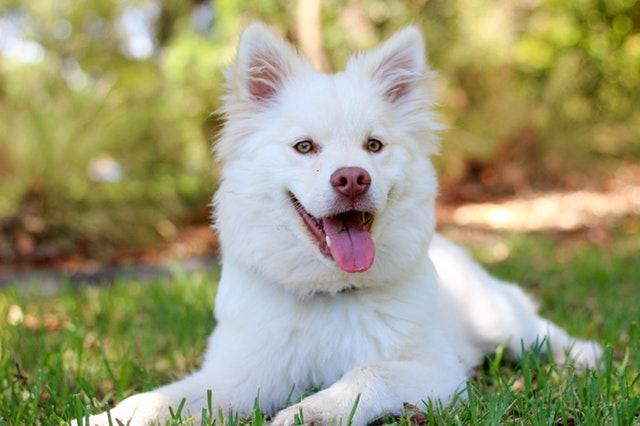
If you have decided to adopt a dog, bless your soul.
Homeless dogs need more and more people like you to shed light in this cruel, wretched world. Adopting a dog does not only give you a sense of fulfillment but also gives you the power to save a life. Be proud of yourself. Your simple act of love has just given an abused pooch a second chance at life.
Saving a dog doesn’t end in adoption. Once you have adopted a canine, it will require more time, effort, and extreme patience for them to get back in shape or become their usual happy self. Most of these dogs are wary of humans so it takes some time for them to fully trust their new owners. But once they do, you can expect a grateful, loyal and unconditionally loving pet.
For adopted or rescue dogs who have been through a lot to find their second home, this makes proper nutrition all the more vital. Many of these canines have experienced starvation that in order for them to succeed in their new lives, they will need all the support and love they can get.
Before you decide on the best option in pet food to give your new dog, you have to first understand how to build the six blocks of good nutrition for a healthy canine diet.
1. Fresh Water
Just like any living thing, your dog should always have access to water, lots of it. Always make it a point that your dog’s freshwater supply is in a clean bowl.
Water keeps your dog hydrated while regulating his body temperature. It aids digestion, keeps muscle tissues lubricated, flushes away bacteria, transports oxygen and nutrients all through the body, and eases constipation. The quality of your pooch’s drinking water is also important as most tap water contains harmful chemical additives.
2. Proteins
Proteins maintain and build bones, blood, body tissues, muscles, organs, immune system, etc. Although many foods contain protein, the best sources for your dog would be:
- Beef
- Eggs
- Fish
- Poultry
- Grains
- Soy
3. Fats
Fats are the main source of calories in a canine’s diet that provides a concentrated source of energy. A gram of fat contains more than twice the energy of a gram of protein or carbohydrate.
Nutritious fats are required for healthy eyes, coat, skin, brain, and other tissues and come from:
- Chicken
- Lamb
- Sunflower oil
- Herring oil
4. Carbohydrates
Carbohydrates are a major source of energy in a canine’s body. Among the good sources of carbohydrates include:
- Rice
- Corn
- Potatoes
- Barley
- Whole grain bread
Dogs, however, can’t digest an uncooked grain as smoothly as meat. So whenever you feed grains, cook them for easy digestion.
5. Vitamins and Minerals
A dog’s body can’t produce its own vitamins. Vitamins and minerals contain essential nutrients such as calcium, iron, and magnesium which are critical to your pet’s overall health and wellbeing. They are usually found in food items like:
- Bread
- Dairy products
- Fish
- Grains
- Fruits and vegetables
6. Fatty Acids
Fatty acids are classified into two categories: essential and non-essential
- Essential fatty acids can’t be synthesized within a dog’s body which is why they have to be supplied in the diet.
- On the other hand, non-essential fatty acids can be synthesized at a level required by the canine’s body.
However, dogs only require one type of omega-6 essential fatty acid (linoleic acid) which is primarily found in grains, animal fat, and high-quality dog food. This essential fatty acid helps regulate blood flow and in normal reproduction. It also boosts the immune system and helps maintain a healthy coat and skin.
You know that before you adopted your dog, it came to the animal shelter or rescue group with a thin and undernourished body. So the six basic building blocks of good nutrition mentioned above should be taken into consideration during the care and recovery process of your new pet.
Ideally, a rescued dog should be thoroughly checked by your local veterinarian so he can advise you regarding the dog’s proper nursing and care. And as the new owner, you also have the responsibility to make sure your dog eats healthy. So when you visit a pet shop nearby for dog food and accessories, see to it that the basic requirements for a healthy dog diet are found on each dog food label.
Image Credit: Pexels
About The Author:
Farah Al-Khojai is the Managing Partner of Pet’s Delight. A passionate entrepreneur, Farah holds a BSc in Government from the London School of Economics. She is always on the lookout for new opportunities to develop and grow the pet and equestrian retail and wholesale market in the UAE and beyond, and is proud to be at the helm of the first and the largest pet care provider in the market representing world-class brands including Origen, Applaws, Hunter, Savic, Flamingo, Ruffwear, and Rogz.



![[Infographic] Fostering Emotional Intelligence in Children Through Parental Self-Understanding Emotional Intelligence in Children](https://www.safeandhealthylife.com/wp-content/uploads/2023/10/Emotional-Intelligence-in-Children-150x150.webp)
